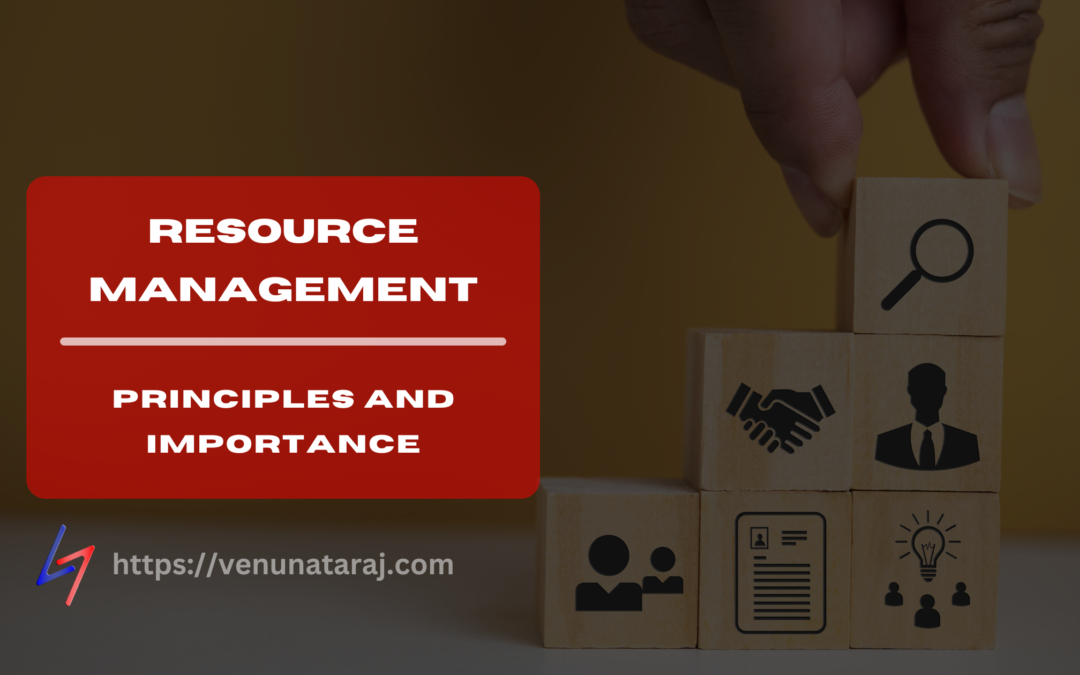Table of Contents
Principles of Resource Management and Its Importance in Construction Projects
Resource management is a critical aspect of construction project management that can significantly impact a project’s success. Effective resource management ensures that the right resources are available at the right time, optimizing project efficiency and reducing costs. In this article, we’ll explore the key principles of resource management and discuss why it’s so important in construction projects.
Principles of Resource Management
Resource Planning
Resource planning is the foundation of effective resource management. It involves identifying, estimating, and scheduling the resources needed for a construction project. This principle focuses on:
- Determining the types of resources required (e.g., labor, materials, equipment)
- Estimating the quantities of each resource needed
- Creating a timeline for when resources will be needed throughout the project lifecycle
Proper resource planning helps project managers anticipate resource needs, avoid shortages, and prevent over-allocation of resources. It also allows for better coordination with suppliers and subcontractors, ensuring that materials and specialized labor are available when needed
Resource Allocation
Once resources are identified and quantified, they need to be allocated efficiently. Resource allocation involves:
- Assigning resources to specific tasks or activities
- Balancing resource availability with project demands
- Considering resource constraints and dependencies
Effective resource allocation ensures that resources are used efficiently and that there’s no unnecessary idle time. It also helps prevent conflicts between different project activities that may require the same resources simultaneously
Resource Optimization
Resource optimization is about making the best use of available resources. This principle focuses on:
- Maximizing resource utilization
- Minimizing waste and inefficiencies
- Balancing resource usage across the project timeline
By optimizing resources, project managers can improve overall project performance and reduce costs. This might involve strategies such as cross-training team members to handle multiple tasks or implementing lean construction techniques to reduce material waste
Resource Leveling
Resource leveling is a technique used to address resource conflicts and over-allocation. It involves:
- Adjusting the project schedule to balance resource demand with availability
- Smoothing out resource usage to avoid peaks and valleys
- Resolving conflicts when multiple activities require the same resources simultaneously
Resource leveling helps maintain a steady workflow and prevents burnout or underutilization of resources. It may involve shifting non-critical activities to periods of lower resource demand or adjusting the project timeline to accommodate resource constraints
Importance of Resource Management in Construction Projects
Ensures Efficient Use of Resources
Effective resource management is crucial for making the most of available resources. By carefully planning and allocating resources, project managers can:
- Reduce waste and unnecessary expenses
- Improve productivity and efficiency
- Maximize the value derived from each resource
This efficient use of resources contributes directly to the project’s bottom line and overall success. For example, proper scheduling of equipment can minimize rental costs, while efficient labor allocation can reduce overtime expenses.
Avoids Bottlenecks
Resource management helps identify and prevent potential bottlenecks in the construction process. By anticipating resource needs and potential conflicts, project managers can:
- Proactively address resource shortages or over-allocation
- Maintain a smooth workflow throughout the project
- Minimize delays caused by resource-related issues
Avoiding bottlenecks is essential for keeping the project on schedule and within budget. For instance, ensuring that specialized equipment or skilled labor is available when needed can prevent delays that could ripple through the entire project timeline.
Reduces Costs
One of the most significant benefits of effective resource management is cost reduction. By optimizing resource usage, project managers can:
- Minimize idle time for equipment and labor
- Reduce over-allocation and overtime costs
- Improve accuracy in resource procurement, avoiding excess inventory or shortages
These cost savings can have a substantial impact on the project’s financial performance and profitability. For example, accurate resource forecasting can help avoid rush orders for materials, which often come with premium prices.
Implementing Effective Resource Management
To implement effective resource management in construction projects, consider the following strategies:
- Use resource management software: Utilize specialized tools to track, allocate, and optimize resources more efficiently. These tools can provide real-time visibility into resource usage and help identify potential conflicts.
- Develop a detailed resource management plan: Create a comprehensive plan that outlines resource needs, allocation strategies, and contingencies. This plan should be integrated with the overall project schedule and budget.
- Regularly monitor and update resource usage: Keep track of actual resource consumption and compare it to planned usage, making adjustments as necessary. This ongoing monitoring helps identify discrepancies early and allows for timely corrective actions.
- Foster communication among team members: Encourage open communication to identify resource-related issues early and collaborate on solutions. Regular team meetings can help ensure everyone is aware of resource constraints and allocation decisions.
- Implement a change management process: Establish a system for handling changes in resource requirements as the project evolves. This process should include assessing the impact of changes on resource allocation and overall project performance.
- Conduct post-project reviews: Analyze resource management performance after project completion to identify areas for improvement in future projects. These lessons learned can be invaluable for refining resource management strategies over time.
By focusing on these principles and strategies, construction project managers can significantly improve resource management, leading to more efficient and successful projects. Effective resource management not only helps in meeting project objectives but also contributes to long-term organizational success by optimizing resource utilization across multiple projects.
In conclusion, resource management is a critical component of successful construction project management. By carefully planning, allocating, optimizing, and leveling resources, project managers can ensure efficient use of resources, avoid bottlenecks, and reduce costs. This not only improves individual project outcomes but also enhances the overall performance of construction organizations in an increasingly competitive industry.
Additional Reads:
Evolutionary Significance of Resource Management
6 Models to Assess Requirements in Construction Projects
Top 8 Challenges in Construction Project Resource Management

